
Frugal Living Friday: Giving Tuesday and the Heart of Generosity
Frugal Living Friday: Giving Tuesday and the Heart of Generosity Home / Frugal Living Friday: Giving Tuesday and the Heart of Generosity Frugal Living Friday:
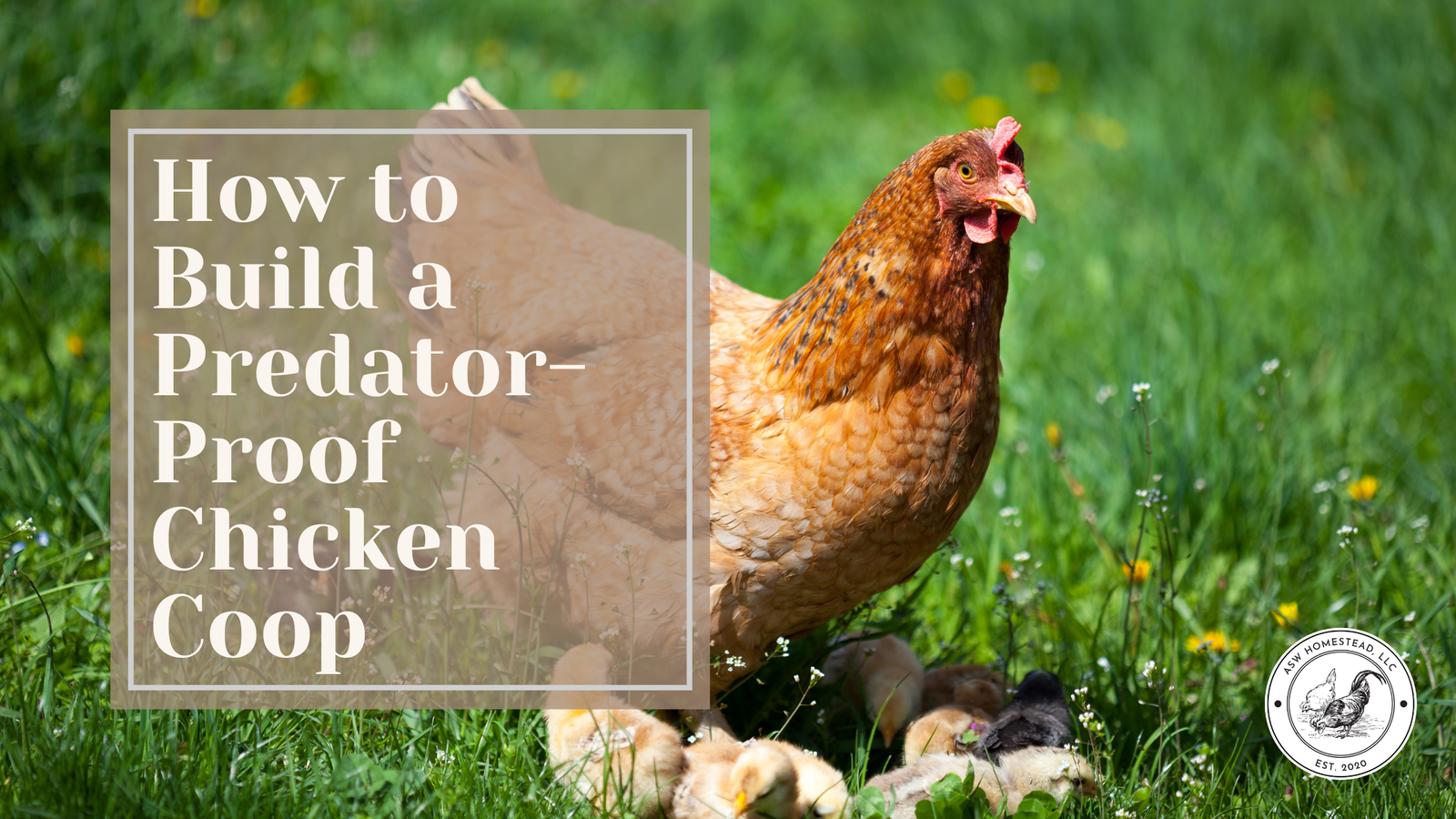
Hello, friends! If you’re raising chickens on your homestead like we are, you know how much joy they can bring. Not only do they provide fresh eggs and entertainment with their quirky personalities, but they also help reduce pests and fertilize your garden. But with all the benefits of keeping chickens comes a big responsibility: keeping them safe with a predator-proof chicken coop.
Whether it’s raccoons, foxes, hawks, or even snakes, predators will quickly target your flock if they see an opportunity. That’s why building a predator-proof chicken coop is so important. In today’s post, I’m excited to share with you how to build a coop that will keep your chickens safe and secure, day and night.
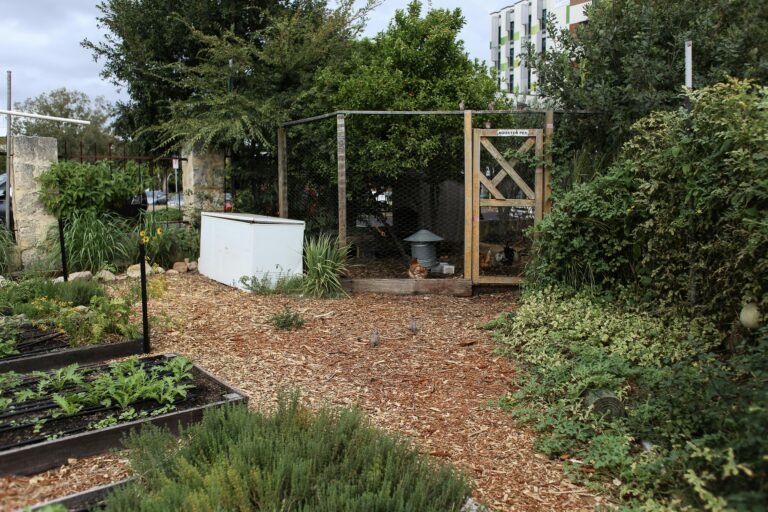
The first step in building a predator-proof coop is choosing the right location. Where you place your chicken coop can make a big difference in keeping predators at bay.
1. Consider Visibility and Proximity
Try to place your chicken coop in an area that’s close to your home or in a spot that’s easy to check on frequently. The more visible your coop is to you, the better. Predators are more likely to target coops that are far from human activity, so placing the coop in a busy area of your homestead can help deter them.
2. Avoid Low-Lying Areas
It’s best to avoid placing your coop in low-lying areas where water might collect. We have firsthand experience of wet conditions weakening the coop’s structure over time, making it easier for predators to break in. Plus, chickens prefer a dry environment, so an elevated or well-drained area is ideal.
3. Consider Your Fencing Options
If possible, place the coop inside a fenced-in area, such as a garden or yard with fencing already in place. This adds an extra layer of protection and can deter larger predators like foxes and coyotes from even getting close to the coop.
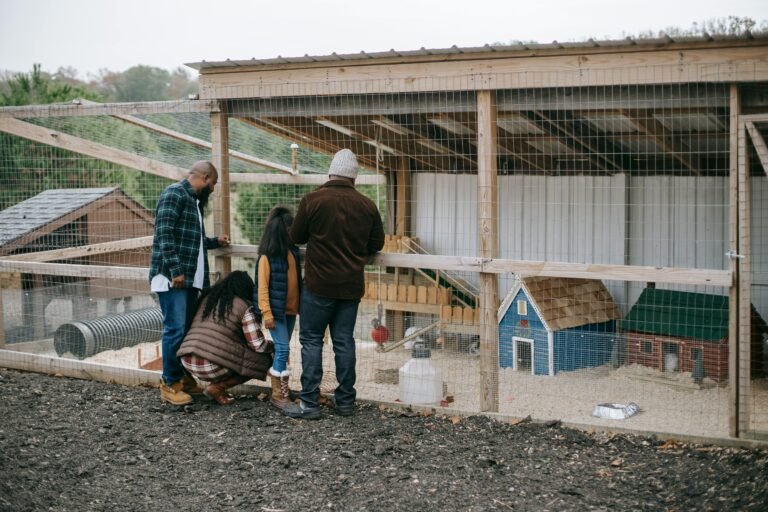
Once you’ve chosen the perfect spot for your predator-proof chicken coop, it’s time to focus on building a structure that will keep predators out. Here’s how to make sure your coop is sturdy and secure.
1. Use Sturdy Materials
When building your chicken coop, choose strong, durable materials like wood, metal, or heavy-duty plastic. Avoid using flimsy or lightweight materials, as predators can easily chew, scratch, or break through them.
2. Reinforce the Coop Walls and Roof
Predators are incredibly resourceful, and they’ll try to get into your coop any way they can—whether it’s through the walls, the roof, or even digging underneath. To prevent this, make sure the walls and roof of your coop are reinforced. Use thick, solid wood or metal sheeting to create a barrier that predators can’t break through. Avoid using chicken wire for the coop walls, as it’s not strong enough to keep out determined predators.
3. Install a Solid Door with Secure Latches
A strong, solid door is a must for any chicken coop. Make sure the door is made from a sturdy material, like wood or metal, and that it fits securely in the doorframe. For added protection, use a heavy-duty latch that requires two steps to open—like a latch and a lock or carabiner. Many predators, including raccoons, are surprisingly clever and can figure out how to open simple latches, so make sure yours is secure.
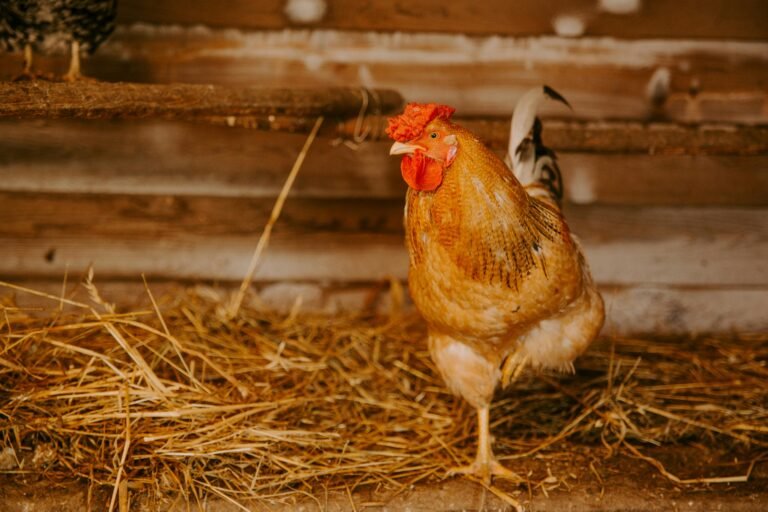
One of the most common ways predators get into chicken coops is by digging underneath or flying in from above. To build a truly predator-proof chicken coop, you’ll need to protect your flock from both directions.
1. Bury Hardware Cloth Underground
To prevent predators like foxes, raccoons, and even dogs from digging underneath your coop, bury hardware cloth around the perimeter. Hardware cloth is a strong, metal mesh that’s much more durable than chicken wire. Dig a trench around the coop and bury the hardware cloth at least 12 inches deep, and extend it outward by about 12-18 inches in an “L” shape. This will make it difficult for predators to dig their way under the coop.
2. Install a Predator-Proof Floor
Another way to protect your coop from digging predators is to install a solid floor. You can use wood, concrete, or even more hardware cloth as the base of your coop. If you choose hardware cloth, secure it tightly to the bottom of the coop to prevent predators from squeezing through.
3. Cover the Coop and Run with Netting or Hardware Cloth
Hawks, owls, and other birds of prey are always on the lookout for an easy meal, and an uncovered coop or run is an open invitation. To protect your flock from aerial predators, cover the entire top of your chicken run with hardware cloth or aviary netting. This will keep birds of prey out while still allowing sunlight and fresh air to flow into the coop.
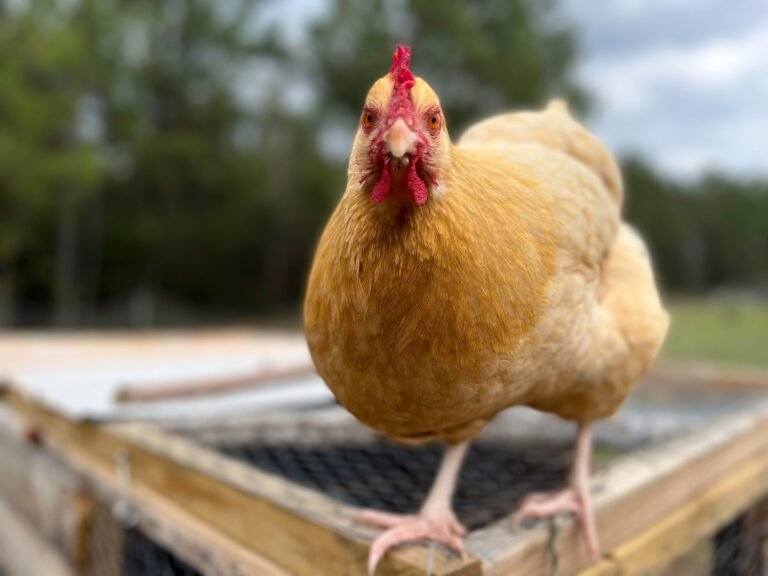
If your chickens spend time in an outdoor run, it’s essential to make that space just as predator-proof as the coop itself. Here’s how to secure the run and make it safe for your flock.
1. Use Heavy-Duty Fencing
The fencing around your chicken run should be made from heavy-duty materials like welded wire or hardware cloth. While chicken wire is often used in coops, it’s not strong enough to keep out larger predators like raccoons, foxes, or even dogs. Hardware cloth with a mesh size of 1/4 inch is ideal, as it’s small enough to keep out even the smallest predators.
2. Bury the Fencing or Use a Skirt
Just like with the coop, it’s important to protect the run from digging predators. You can bury the fencing 12-18 inches into the ground or use a hardware cloth skirt around the perimeter of the run. This will make it difficult for predators to dig their way in.
3. Create a Secure Roof
A secure roof over the run will help keep out aerial predators as well as climbing predators like raccoons. You can use a solid roof made from metal or wood, or you can use hardware cloth or netting for a more open, airy feel.
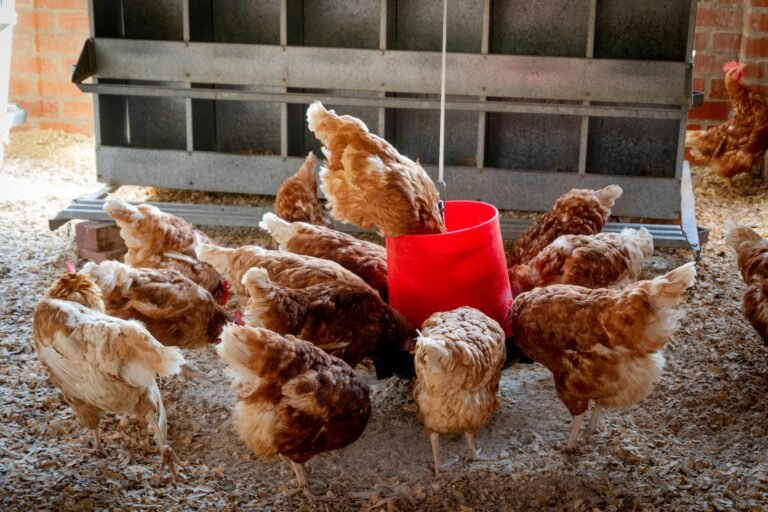
A well-maintained coop is not only healthier for your chickens but also less attractive to predators. Here’s how to keep your coop clean and predator-proof.
1. Remove Food Scraps and Leftovers
Predators are attracted to food, so it’s important to remove any leftover chicken feed or food scraps at the end of the day. Make sure to store chicken feed in a secure, sealed container that predators can’t access. This will help reduce the risk of attracting unwanted visitors.
2. Lock the Coop at Night
Most predators are nocturnal, meaning they’re most active at night. Make it a habit to lock your chickens in the coop each evening to keep them safe from night-time predators. Be sure to do a quick check to ensure all doors and windows are securely latched before heading in for the night.
3. Regularly Inspect the Coop for Damage
Over time, wear and tear on your coop can create small openings or weak spots that predators can exploit. Regularly inspect the coop for any signs of damage, such as loose boards, gaps in the fencing, or broken latches. Repair any issues right away to keep your coop secure.
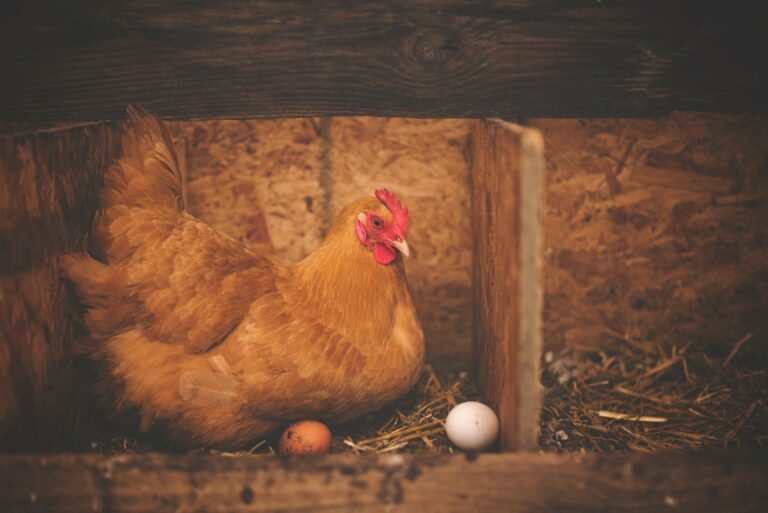
If you want to go the extra mile in protecting your chickens, there are a few additional steps you can take to deter predators.
1. Install Motion-Sensor Lights
Many predators, especially nocturnal ones, are deterred by bright lights. Installing motion-sensor lights around your coop and run can help scare off predators before they get too close.
2. Use Predator Deterrents
There are a variety of predator deterrents available that can help keep predators away from your coop. These include things like motion-activated sprinklers, ultrasonic repellers, and even decoys like fake owls. While these deterrents aren’t foolproof, they can add an extra layer of protection for your flock.
3. Keep Guard Animals
Many homesteaders keep guard animals, such as dogs or even livestock guardian animals like donkeys or llamas, to help protect their chickens. These animals can be highly effective at deterring predators and keeping your flock safe.
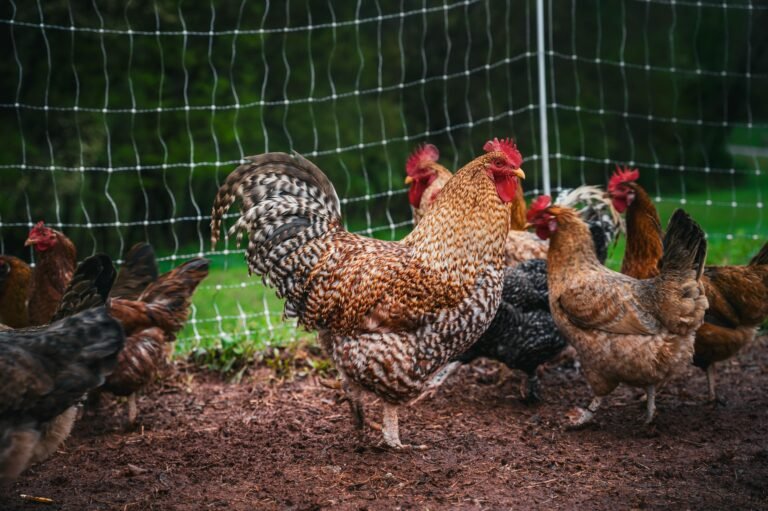
Building a predator-proof chicken coop is one of the most important things you can do to protect your flock and ensure their safety. By using sturdy materials, securing the coop from above and below, and keeping it well-maintained, you can give your chickens a safe and secure home where they can thrive.
While it may take a little extra effort, the peace of mind that comes with knowing your chickens are safe from predators is well worth it. Plus, a predator-proof coop means more fresh eggs and happy chickens for you and your family!

Around here, we’re learning as we go—one season, one project, and one lesson at a time. I’m glad you’re along for the journey.

Frugal Living Friday: Giving Tuesday and the Heart of Generosity Home / Frugal Living Friday: Giving Tuesday and the Heart of Generosity Frugal Living Friday:

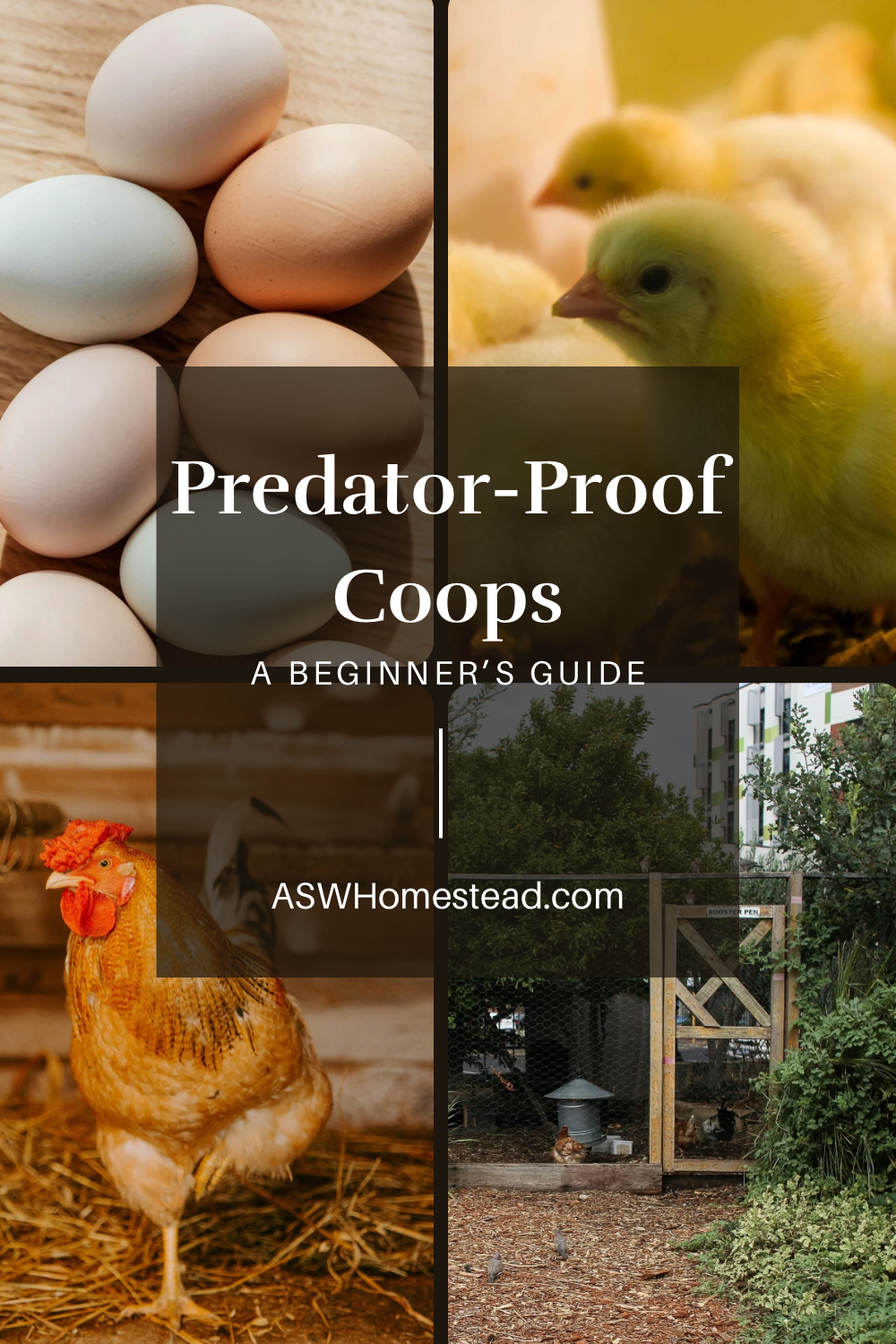
2 Responses